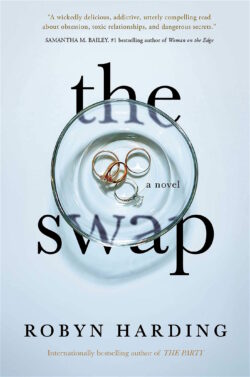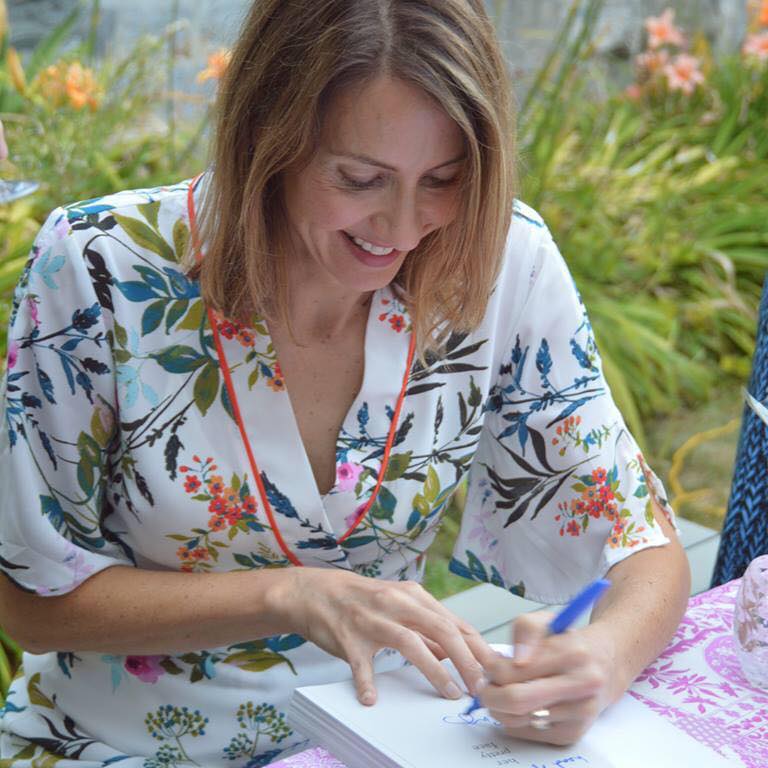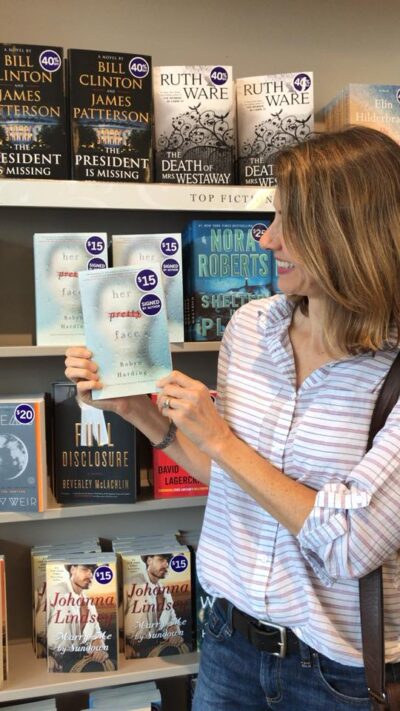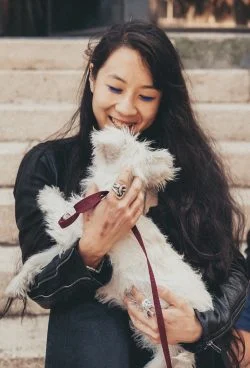1057 A salacious romp
The Swap
by Robyn Harding
Toronto: Simon & Schuster, 2020
$24.99 / 9781982144760
Reviewed by Jessica Poon
*
 The Swap by Robyn Harding is that cocktail you’re embarrassed to order, decide to order after going around and saying “Fuck it, I deserve to have some fun; there’s no such thing as a guilty pleasure in my vernacular,” and then you’re that tipsy person going around telling everybody about how that cocktail was singularly the best decision in your life and everybody should really just follow suit and become equally drunk. By which I mean, as the cover suggests, The Swap is indeed a salacious romp, but it’s also a great showcase of Harding’s masterful ability both in revealing and withholding details for maximal intrigue. The Swap boasts a bevy of interesting characters, is unafraid of juxtaposing gender stereotypes along with subversions of gender stereotypes, and keeps you guessing.
The Swap by Robyn Harding is that cocktail you’re embarrassed to order, decide to order after going around and saying “Fuck it, I deserve to have some fun; there’s no such thing as a guilty pleasure in my vernacular,” and then you’re that tipsy person going around telling everybody about how that cocktail was singularly the best decision in your life and everybody should really just follow suit and become equally drunk. By which I mean, as the cover suggests, The Swap is indeed a salacious romp, but it’s also a great showcase of Harding’s masterful ability both in revealing and withholding details for maximal intrigue. The Swap boasts a bevy of interesting characters, is unafraid of juxtaposing gender stereotypes along with subversions of gender stereotypes, and keeps you guessing.
Harding’s protagonist, Low Morrison, fulfills and subverts what I will provisionally call the Creepy Child Archetype by making her adolescent teenager protagonist sympathetic and creepy. In fact, while we’re at it, let’s investigate what we even mean by “creepy” — is it like how we use the word “pretentious” to describe someone exhibiting the least bit of learned, esoteric enthusiasm? Much like the word “pretentious,” the word “creepy” is an immediate stigma that predetermines everything else about someone, which is concerningly bereft of nuance. Her friendship with Freya, an artist married to Max, a hockey player, does not start innocently. Rather, after spying Freya’s gorgeous appearance, Low signs up for her pottery lessons and becomes her only student. Why a demonstrably wealthy woman feels the need to advertise pottery lessons at a high school warrants at least some scrutiny; however, that’s never addressed. Maybe it’s as simple as Freya actively wanting to cultivate a friendship with a much younger disciple; maybe it comes from a place of loneliness or boredom, or all of the above. Low’s motives, however, are clear: she wants to know Freya and has since the first moment she spied her. Low is utterly bewitched, but balks at the notion of “merely” being in love with her.

Low is a friendless teenager with polyamorous, almost oppressively open-minded parents who christened her as Swallow in a moment of ostensible profundity. Unsurprisingly, such a name ends up becoming an innuendo-laced, nomenclatorial albatross and she shortens her name to Low. Although her parents accuse her of conformity, her friendlessness, of course, indicates quite the opposite:
My parents considered themselves artistic, spiritual beings. They convinced themselves that calling me after this little bird was poetic, when really, it was just literal. And kind of lazy.
As a kid, I liked my name. Being named for a bird was unique. I read up on swallows, focusing on their positive attributes like their streamlined shape and their ability to fly all the way to Mexico in the winters. I ignored less appealing factoids like property damage caused by their habit of pooping off the edge of the mud nests they built on the side of homes and barns. (Really, this was a sign of a very clean bird, but I still didn’t like to focus on it.) Bird imagery became a personal theme onto my lunch box, my backpack, and the sleeve of my jacket.
And then came middle school.
It was about four days into seventh grade when Kai Boyd, a short, sporty boy with a smattering of freckles across his nose (they gave his face a misleading innocence), approached me.
“Hey, Swallow.”
“Hey.”
“So . . . do you?”
“Do I what?”
“Swallow?”
Unfortunately, my naivete resulted in an honest answer. “Uh . . . yeah. Of course. Everyone does.”
“She does! He shrieked. “She swallows!”
Maple Dunn was kind enough to explain my answer in a detailed, sexualized context. That’s when I shortened my name to Low (and, possibly, lost interest in sex). My parents were hurt by my rejection of the highly meaningful moniker they had chosen for me.
“Swallows are tiny little birds capable of great feats,” my father said. “Just like you.”
“You can’t change to please other people,” my mom added. “Do you want to live your life as a conformist?”
But I wasn’t tiny or capable of greatness. And I certainly wasn’t a conformist. (If I had been, I would have had more friends.) (pp. 38-39)
With my last name, Poon — to which no further comment will be added — I felt Low’s pain; I felt her desire to un-name herself. Cruelly, one seldom chooses one’s name, one of the first unceasing indignities of life. Children, teenagers, are not an unequivocal blessing but often a true bastion of relentless cruelty, often regarding things they do not even fully understand. You can learn how to say “That’s what she said” without necessarily having, say, an empirical understanding.

Low’s sexual orientation is never made blatantly clear, which is a real boon. Although hyper specificity is a legitimately welcome reprieve from the outmoded, false binary of heterosexuality vs. homosexuality (with bisexuality and asexuality generally being dismissed, or ignored), the label-lessness of it all is truly refreshing. Low herself surmises that:
Perhaps my apathy toward sex stemmed from growing up with parents who so exuberantly enjoyed it. It wasn’t like they did it in front of me, but nor did they pretend, like all parents should, that they never did it at all (p. 18).
Although Low’s thoughts may seem immature, they actually struck me as warrantedly mocking the way adults put romantic relationships on a pedestal, whereas Low believes that “Romantic love doesn’t even begin to convey our bond.” (p. 17) In Low’s words,
Freya and I had a soul connection. I know that sounds like something I read in one of my parents’ New Agey books (and it is), but it’s also the truth. My friendship with Freya felt complex, profound, and eternal. She made me feel like a whole person, for the first time in my life.
My sexuality, at seventeen, remained undefined. I had, on occasion, had crushes on boys and, as often, on girls. These feelings had all gone unreciprocated, though, which prevented me from declaring a preference. And while I longed for a romantic relationship, it wasn’t about sex for me. I wanted intimacy and connection, but felt no need to get naked and swap bodily fluids. I might have been biromantic asexual. Or maybe I was a bisexual late bloomer. There was no pressure to label myself. I was raised in a progressive community, in an unconventional family. I was taught to have an open mind. My polyamorous parents led by example (p. 17).

Freya and Max marriage proves more tumultuous than it appears on the surface, with Max being polite but relatively taciturn. When Freya befriends Jamie, a comparatively bland woman who owns a shop and longs for a baby with her similarly bland husband, the soap opera elements kick in with propulsive force. There are no dull moments. Low is stricken with jealousy, although jealousy is perhaps not the right word. After all, the difference between jealousy and envy is that jealousy is a proprietary madness, and, of course, Low does not own Freya; rather, Freya is Low’s only friend and confidante, but this singularity is not reciprocated. Freya is too magnetic to only have a teenage friend; after all, why restrict emotional manipulation to only one vulnerable teenager? Low ends up working at Jamie’s shop — all the better to observe Freya and Jamie’s friendship, which she views as direct competition. Low is only hired after Freya personally vouches for her, as a result of Jamie correctly gauging Low to be a Creepy Child of sorts. Despite her relative friendlessness, Freya notwithstanding, Low does have one suitor. Thankfully, this suitor does not result in a tragically heteronormative relationship, thereby suggesting that all weirdos and ciphers find love and become resultantly normal; no, The Swap is too clever for that farce and all the better for it.
Things become increasingly complicated, i.e., juicy, when Freya and Max “swap” with Jamie and her husband, Brian. For an elongated period of time, Jamie is uncertain as to whether only she and Max committed infidelity, or whether the infidelity was full circle and is reluctant to find out. Either she fell for a ploy of Max’s — he said it was Freya’s idea — and gave consent under circumstances that proved to be false; that, or Freya and Brian also committed reciprocal infidelity. An unpredictable (for the characters, anyway) pregnancy, domestic violence, a gun, a teenage stalker cum surreptitious photographer, a paternity test, the flattering echo chamber of Instagram — all of these ingredients are present in The Swap.
Periodically, I found myself interrupting my boyfriend, who was reading a dry philosophy book, with exclamations of “Oh my God!” Suffice to say, having begun The Swap slightly past midnight, I was poorly rested for work, but didn’t regret a word of it. If your reading tends to be nocturnal, be well apprised that The Swap will keep you up but more importantly, it will be worth it.
*

Jessica Poon is a writer, line cook, and pianist in Vancouver. She recently completed her bachelor’s degree in English literature at the University of British Columbia. Visit her website here. Editor’s note: Jessica Poon has also reviewed books by Brad Hill & Chris Dagenais, Lindsay Wong, Emily St. John Mandel, Sheung-King, Eve Lazarus, Annabel Lyon, Monika Hibbs, Grant Hayter-Menzies, and Wayson Choy for The Ormsby Review.
*
The Ormsby Review. More Books. More Reviews. More Often.
Publisher and Editor: Richard Mackie
The Ormsby Review is a journal service for in-depth coverage of B.C. books and authors. The Advisory Board consists of Jean Barman, Robin Fisher, Cole Harris, Wade Davis, Hugh Johnston, Patricia Roy, David Stouck, Maria Tippett, and Graeme Wynn. Scholarly Patron: SFU Graduate Liberal Studies. Honorary Patron: Yosef Wosk. Provincial Government Patron since September 2018: Creative BC
“Only connect.” – E.M. Forster































One comment on “1057 A salacious romp”